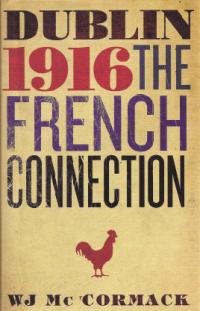
W.J. McCormack
(Gill and Macmillan, €29.99)
ISBN 9780717154128
‘What was to unfold in Ireland, between 1911 and 1921’, writes W.J. McCormack, ‘was effectively an ideological battle to fill the cheap places, to draw the lower middle class into this cause or that, social revolution, imperial retrenchment or nationalist separatism’ (p. 82). ‘Cheap places’ refers to a review of musical culture in the Dublin of 1913, in which the writer noted that the popularity of Wagner ‘grows and grows’. McCormack’s undertaking is to trace the ways in which challenging and often controversial ideas from Europe were conveyed to Ireland via intellectuals, after which they were absorbed (often unconsciously) by the general population. This is an extremely difficult task and McCormack submits a truly impressive range of material in the course of his quest, from the French syllabus read by Pearse and others at the Royal University of Ireland through articles in the Irish Review to the more circuitous connection between the French poets read by Yeats under the guidance of Iseult Gonne, who, through her father Lucien Millevoye, had some contact with the literary salon of the writer and right-wing politician Maurice Barrès.

